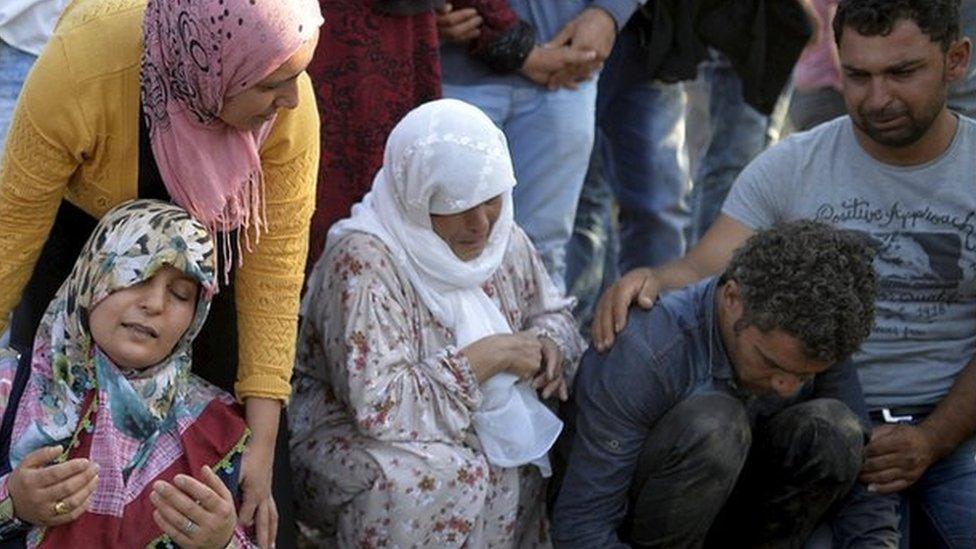Ankara bombing: Turkey suspends top security chiefs
- Published
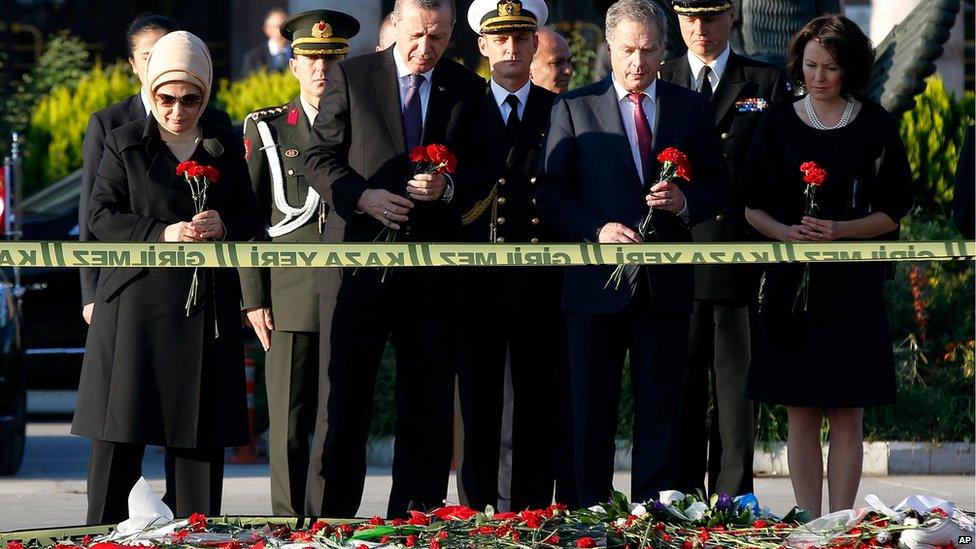
President Recep Tayyip Erdogan visited the site of the bombing on Wednesday
Anakara's police, intelligence and security chiefs have been suspended in the wake of bombings that left 97 people dead in Turkey's capital.
The interior ministry said the move would enable a "robust" investigation.
The attack, the worst in Turkey's modern history, triggered widespread anger against the government.
Turkey's president visited the site of the bombing on Wednesday. The prime minister said both Islamic State and the PKK could have played a role.
Turkish officials have said two suicide bombers carried out Saturday's attack, which targeted crowds gathering for a rally against violence between Turkish government forces and the outlawed PKK (Kurdistan Workers Party).
Initially, Prime Minister Ahmet Davutoglu said IS, the PKK and far-left groups were all capable of such an attack. On Monday, he said IS was the prime suspect.
According to Turkey's Hurriyet newspaper, the two suicide bombers have been identified as Yunus Emre Alagoz and Omer Deniz Dundar.
The first was the brother of the man who carried out a bombing blamed on IS in the southern Turkish town of Suruc in July. The second is said to have been in Syria on two occasions.
Authorities said on Wednesday that they had detained two people with alleged ties to the PKK on suspicion of having prior knowledge of the attack.
But the possible collaboration between IS and the PKK suggested by Mr Davutoglu would be unusual, as the two groups are sworn enemies, the BBC's Mark Lowen reports from Istanbul.

Ankara bombings: Read more
How dangerous is Turkey's unrest? - What are the risks of the crisis deteriorating?
"This is the worst scene I've ever seen" - Shock and anger in Ankara as mourning begins
Blasts divide Turkish media - Not all commentators share the view that IS is to blame
The suspects - A look at the groups that might be responsible

In his first public comments after the bombing, President Recep Tayyip Erdogan admitted there had been intelligence failings.
"There must undoubtedly be a mistake, a shortcoming in some place. Of what dimension? This will emerge after examinations," he said.
"If there's any negligence of duty, then both the prime minister and related units will take steps needed."
There has been widespread anger against the government for failing to prevent the attack. There has also been consternation that four days on from the attack Mr Erdogan has yet to address the nation, our correspondent says.
Mr Erdogan laid flowers for the victims as he visited the site of the attack with Finnish President Sauli Niinisto on Wednesday.
Turkey is politically polarised, and a ceasefire between the government and the PKK broke down in July.
The country is holding a national election on 1 November, a rerun of a vote in June in which the pro-Kurdish HDP won parliamentary seats for the first time, depriving Mr Erdogan's AK Party of its majority.
Most of the victims of the Ankara attack were HDP activists, and the party has said it was specifically targeted.
Critics of the Turkish government believe it is using IS as a scapegoat, and have alleged that murky elements of a so-called "deep state" are to blame.
A football match between Turkey and Iceland on Tuesday night in the central city of Konya was marred by jeering during a minute of silence for the Anakara victims.

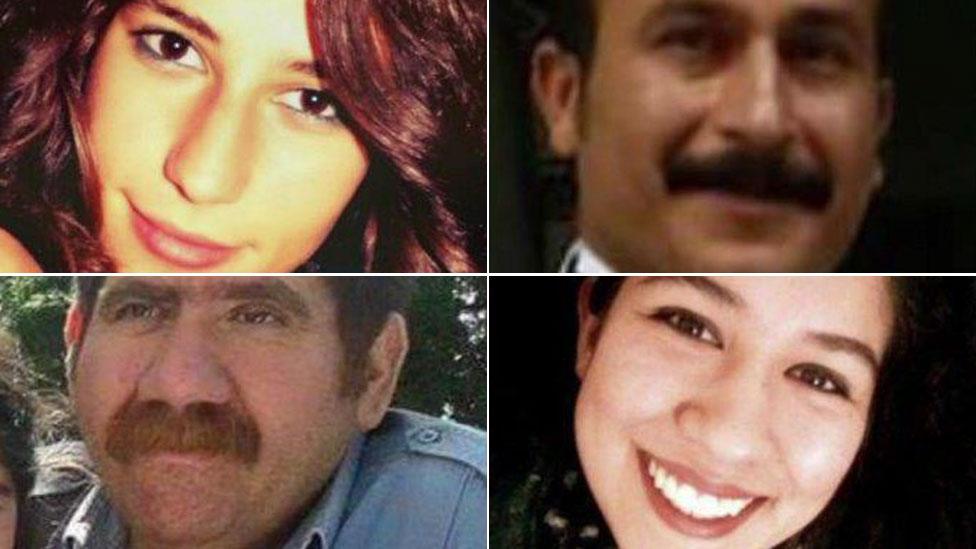
The victims
Turkey is mourning the deaths of at least 97 people. These are just a few of those who lost their lives, clockwise from top left:
Elif Kanlioglu: A 20-year old student in her second year of university, who loved studying foreign languages.
Yilmaz Elmascan: Described by a friend as a peace-loving man, who got married last year. His wife is also said to have been killed in the attack.
Sebnem Yurtman: Studied at Ankara university, and later in Adana. She was described as "full of life".
Mesut Mak: He was a member of an agriculture and forestry union. He had a daughter.

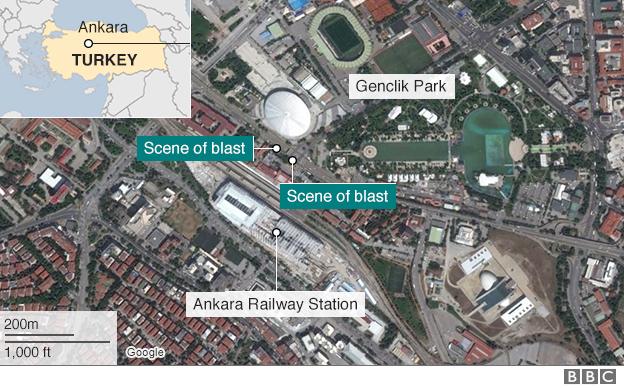
- Published10 October 2015
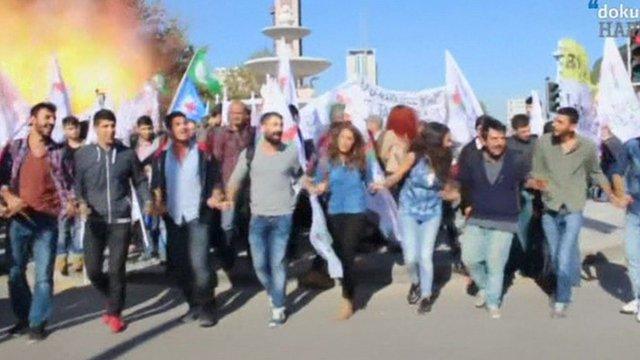
- Published10 October 2015
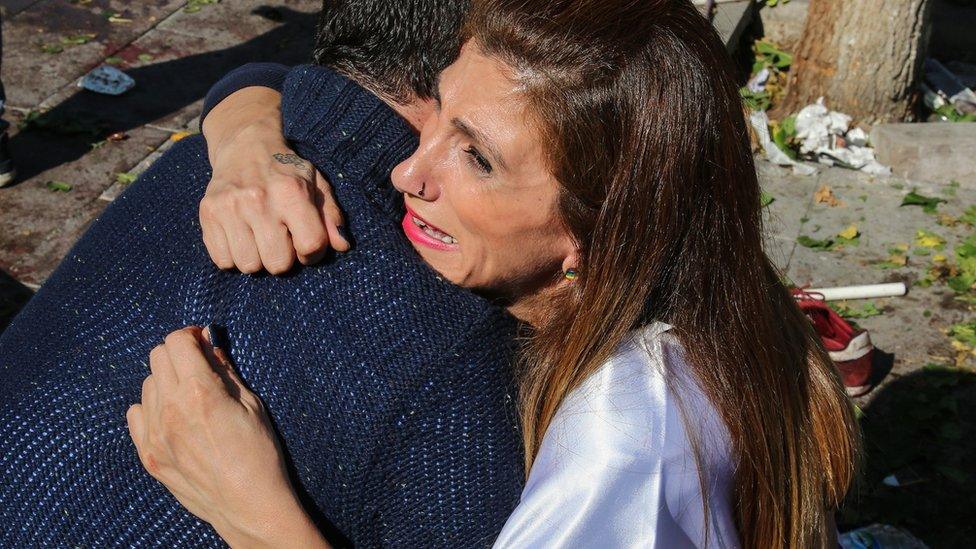
- Published2 December 2015
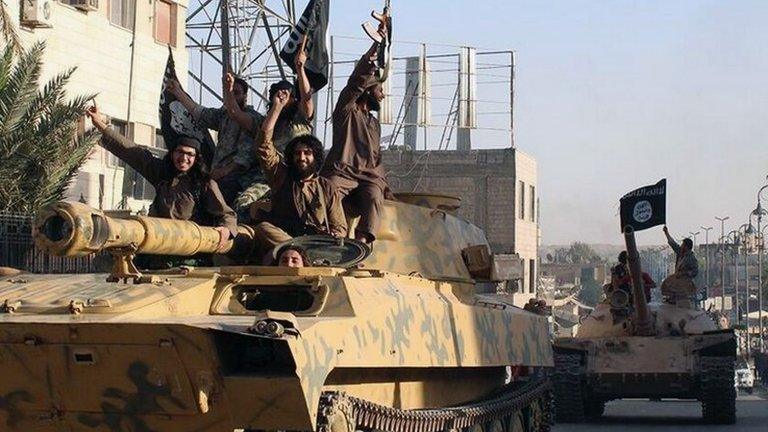
- Published23 August 2016
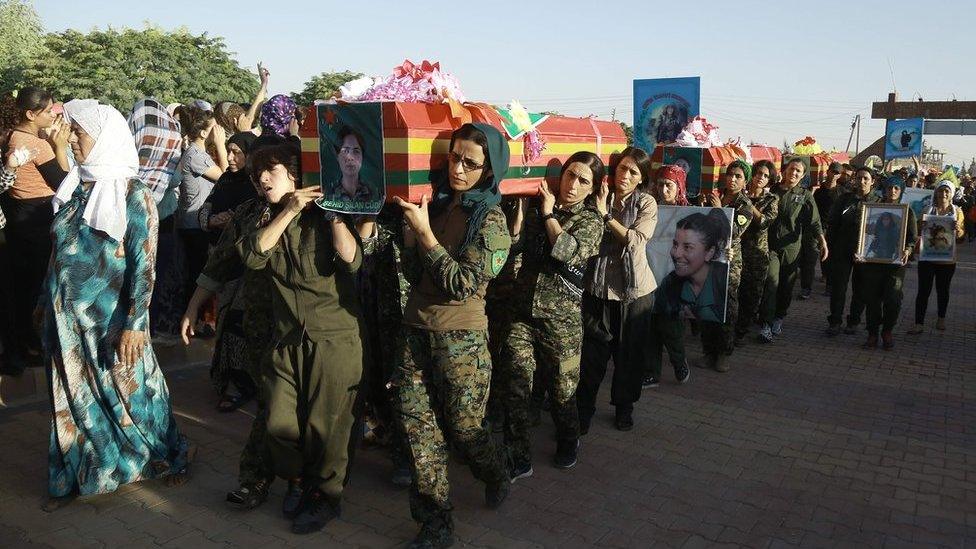
- Published21 July 2015
